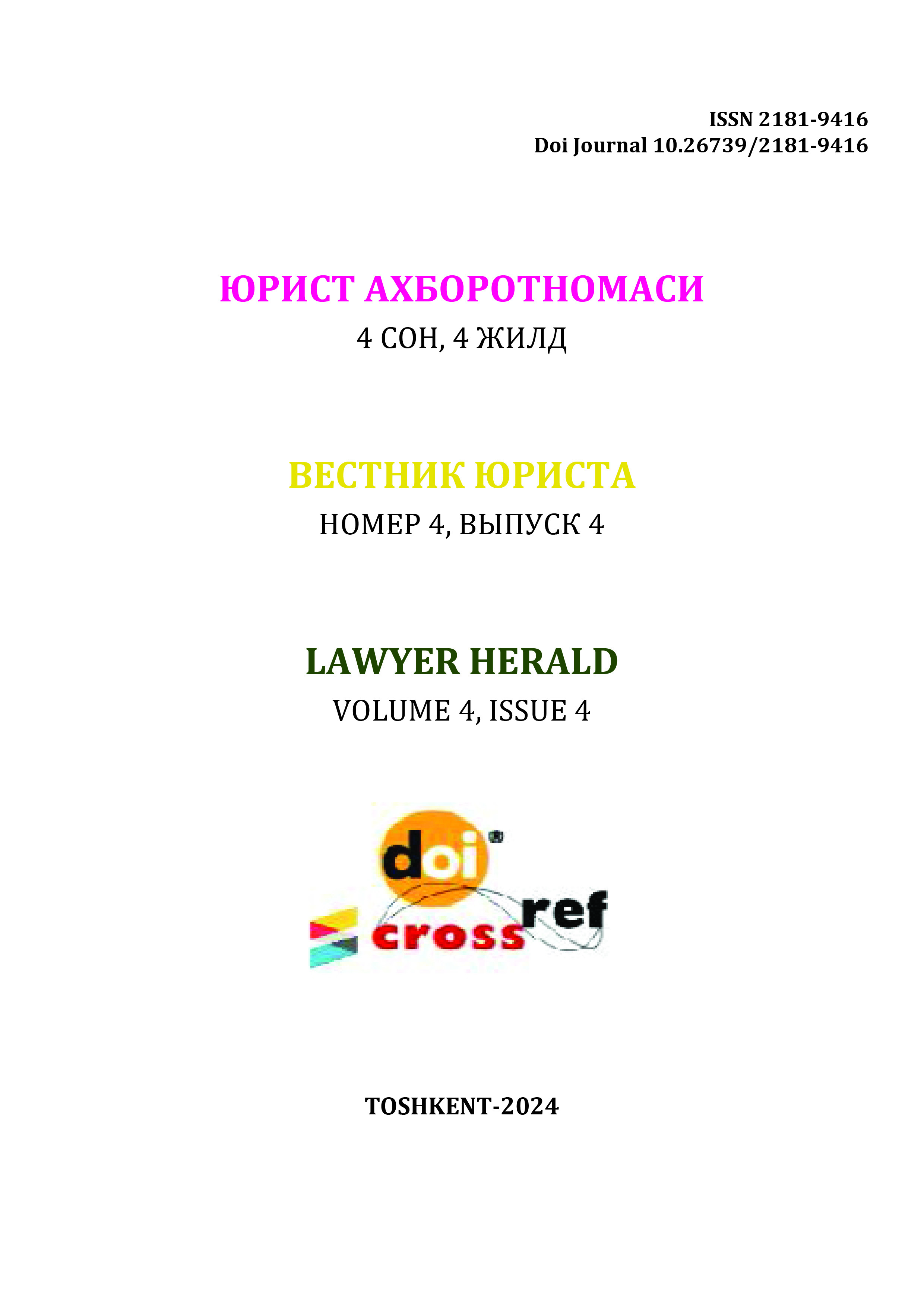Abstrakt
Hozirgi globalizatsiya sharoitida rivojlangan mamlakatlar mehnat bozorida bandlikning notipik shakli ko‘zga tashlanadi. Taraflar o‘rtasida mehnat shartnomasi tuzilgan bo‘lsa-da, undagi ayrim shartlarning o‘zgacha ekanligi ularning odatdagi mehnat munosabatlaridan farqini ko‘rsatib turadi. Bandlikning bunday shakllariga ayrim olimlar muddatli mehnat shartnomalarini ham kiritadi. Sababi muddatli mehnat shartnomalari ba’zi rivojlangan mamlakatlarda nomuayyan mehnat shartnomalaridan faqat muddati bilangina farqlanib qolmasdan, balki xodimlarning ayrim kafolatlardan mahrum ekanligi bilan ham ajralib turadi. Milliy qonunchiligimizda esa bunday farqlar mavjud emas. Mazkur maqolada ham muddatli mehnat shartnomasini bandlikning notipik shakli hisoblanishi yoki hisoblanmasligi masalasi tahlil qilinib, muallif o‘zining ilmiy g‘oyasini isbotlashga harakat qilgan.
Библиографические ссылки
М.Ю.Пинтаева. Терминология и понятия стандартной и нестандартной занятости. «Экономика и социум», №6(61), 2019. // URL: https://cyberleninka.ru/article/n/terminologiya-i-ponyatiya-standartnoy-i-nestandartnoy-zanyatosti;
Smirnykh, Larisa, and Andreas Wörgötter. “The Importance of Institutional and Organizational Characteristics for the Use of Fixed-Term Contracts in Russia.” Journal of East European Management Studies, vol. 24, no. 1, 2019, pp. 89–121. JSTOR, // URL: https://www.jstor.org/stable/26617458. Accessed 14 Aug. 2024.24(1), 89-121.
Baranowska, A., Gebel, M., & Kotowska, I. (2011). The role of fixed-term contracts at labour market entry in poland: stepping stones, screening devices, traps or search subsidies?. Work Employment and Society, 25(4), 777-793. // URL: https://doi.org/10.1177/0950017011419705;
Нестандартные формы занятости. Анализ проблем и перспективы решения в разных странах. Обзорная версия. Международное Бюро Труда – Женева: МБТ, 2017. // URL: https://www.ilo.org/sites/default/files/wcmsp5/groups/public/@dgreports/@dcomm/@publ/documents/publication/wcms_554952.pdf;
O‘zbekiston Respublikasining Mehnat kodeksi. 22.10.2024 // URL: https://lex.uz/ru/docs/-6257288#-6261522;
Lafuente, E. and Berbegal-Mirabent, J. (2017). Contract employment policy and research productivity of knowledge workers: an analysis of spanish universities. The International Journal of Human Resource Management, 30(16), 2360-2386. // URL: https://doi.org/10.1080/09585192.2017.1323226;
Hannerz, H., Burr, H., Soll-Johanning, H., Nielsen, M., Garde, A., & Flyvholm, M. (2022). Fixed-term contract positions, unemployment and mental ill health: a danish cohort study. BMC Public Health, 22(1). // URL: https://doi.org/10.1186/s12889-022-14137-1;
Pérez, J., Marinescu, I., & Castelló, J. (2016). Can fixed-term contracts put low skilled youth on a better career path? Evidence from spain. // URL: https://doi.org/10.3386/w22048;
Labour Code of the Republic of Albania, LAW No. 7961, dated 12.7.1995 // URL: https://euralius.eu/index.php/en/library/albanian-legislation?task=download.send&id=144&catid=116&m=0;
Non-standard forms of employment in selected countries in Central and Eastern Europe. International Labour Organization 2021. // URL: https://www.ilo.org/sites/default/files/wcmsp5/groups/public/@europe/@ro-geneva/@sro-budapest/documents/publication/wcms_793096.pdf;
The Labour Law (“Official Gazette of the Republic of Serbia”, Nos. 24/2005. // URL: https://www.paragraf.rs/propisi/employment-act-republic-serbiahtml.
